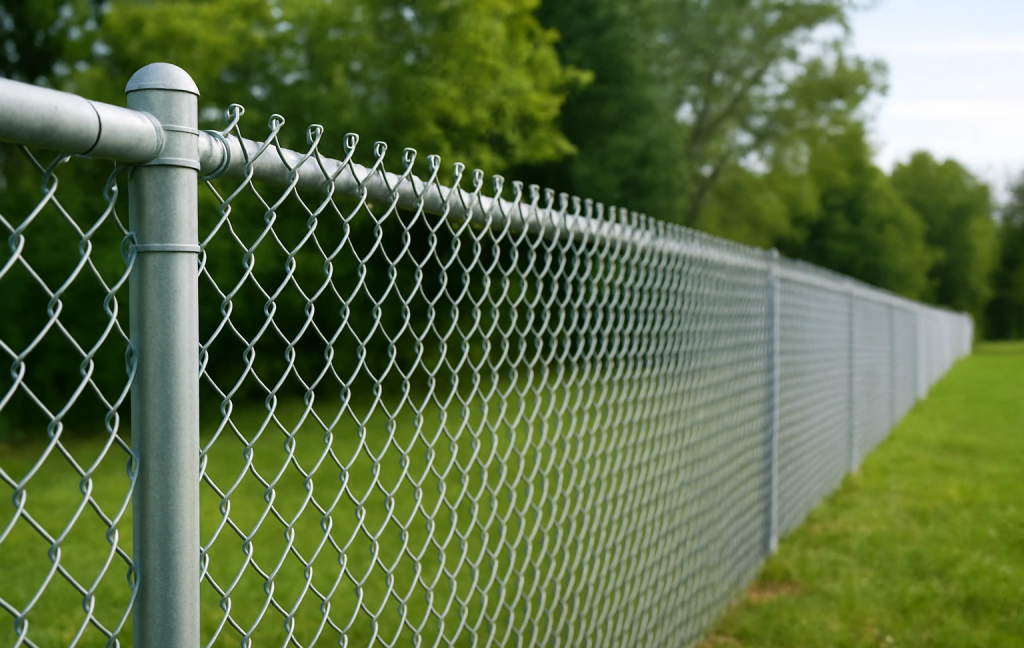The Average Lifetime of Chain Link Fences depends on several key factors: material quality, environmental exposure, coating type, and maintenance frequency. Known for their durability and low cost, chain link fences are a common choice for both residential and commercial applications. However, understanding how long they last—and what affects that longevity—helps property owners make informed, cost-effective decisions.
What Determines Fence Longevity
The lifespan of a chain link fence typically ranges between 15 and 25 years, though some can last even longer with proper care. Factors that influence durability include:
Material quality: Thicker wire gauges provide greater resistance to wear.
Coating type: Galvanized and vinyl coatings prevent rust and extend life.
Environmental conditions: Humidity, pollution, and salt exposure can accelerate corrosion.
Maintenance practices: Regular inspections and cleaning slow down deterioration.
These variables combined determine how well the fence withstands time and usage.
Material and Coating Options
Chain link fences come in several finishes that directly affect durability:
Galvanized steel: The most common and affordable option, offering decent corrosion resistance.
Vinyl-coated wire: Adds an extra layer of protection and aesthetic appeal, ideal for long-term performance.
Aluminized steel: Provides enhanced rust resistance for areas with higher moisture levels.
Choosing the right material ensures a balance between cost, maintenance, and lifespan.
Environmental Factors and Maintenance
The environment plays a critical role in how long a fence lasts. In coastal or industrial areas, salt and pollutants can reduce the lifespan of untreated metal. Regular maintenance practices help mitigate these effects:
Rinse fences periodically to remove dirt and corrosive buildup.
Repaint or recoat damaged sections promptly.
Lubricate gate hinges and inspect posts for signs of wear.
These small steps can extend a fences life by several years, reducing repair costs.
Combining Durability and Design
Many commercial properties combine chain link with other materials to enhance performance and appearance. For instance, pairing chain link with steel fencing increases perimeter strength, while using vinyl fencing at the front of a property improves visual appeal.
In urban environments like Chain Link Fence in Chicago, these combinations help properties meet safety requirements while maintaining an attractive look.
How Professionals Extend Fence Lifespan
Working with experienced Commercial Fencing Contractors Chicago ensures that fences are installed correctly, with proper tensioning, anchoring, and coating application. Professional installers:
Use the correct gauge and materials for the property type.
Ensure posts are set at appropriate depths for stability.
Apply protective finishes for long-term resistance.
Provide tailored maintenance recommendations.
This professional expertise directly influences how well a fence performs over decades.
Cost Considerations and Value Over Time
While chain link fences are cost-effective initially, their true value lies in longevity. Routine maintenance and occasional part replacements cost far less than full replacement. Property owners who invest in high-quality materials and professional installation enjoy lower long-term costs and greater reliability.
Comparing Chain Link with Other Fence Types
In evaluating lifespan and performance, it helps to compare chain link to other fencing materials:
Aluminum fences: Offer superior corrosion resistance but at a higher upfront cost.
Steel fences: Provide heavy-duty protection and minimal flex under impact.
Vinyl fences: Require minimal upkeep but may not offer the same level of visibility or ventilation.
Each type offers advantages depending on location, usage, and aesthetic priorities.
External Resource for Guidance
For expert data on corrosion resistance and metal coatings, refer to the American Galvanizers Association (AGA), which provides technical resources on steel longevity and maintenance.
This reputable source reinforces accuracy and EEAT value without linking to competitors.
Conclusion
Chain link fences remain one of the most practical long-term investments for securing properties. Their average lifespan of 15 to 25 years can extend significantly with quality materials, professional installation, and routine maintenance. Environmental factors, coatings, and care all play vital roles in determining longevity. By working with trusted professionals and selecting the right materials for your environment, you ensure your chain link fence provides security, durability, and value for decades to come.

